About Us
Traditional Naturopath & Functional Medicine Holistic Doctor San Diego Hi, I’m Dr Gaila and I help patient who suffer with belly pain, bloating and constipation and many other health conditions.Read more


Original Article
Diet restriction in migraine, based on IgG against foods: A clinical double-blind, randomised, cross-over trial
Kadriye Alpay1, Mustafa Ertas ?1, Elif Kocasoy Orhan1, Didem Kanca U ? stay2, Camille Lieners3 and Betu ? l Baykan1
Abstract
Cephalalgia
30(7) 829-837 ! International Headache Society 2010 Reprints and permissions: sagepub.co.uk/journalsPermissions.nav DOI: 10.1177/0333102410361404 cep.sagepub.com
Introduction: It is well-known that specific foods trigger migraine attacks in some patients. We aimed to investigate the effect of diet restriction, based on IgG antibodies against food antigens on the course of migraine attacks in this randomised, double blind, cross-over, headache-diary based trial on 30 patients diagnosed with migraine without aura. Methods: Following a 6-week baseline, IgG antibodies against 266 food antigens were detected by ELISA. Then, the patients were randomised to a 6-week diet either excluding or including specific foods with raised IgG antibodies, individually. Following a 2-week diet-free interval after the first diet period, the same patients were given the opposite 6-week diet (provocation diet following elimination diet or vice versa). Patients and their physicians were blinded to IgG test results and the type of diet (provocation or elimination). Primary parameters were number of headache days and migraine attack count. Of 30 patients, 28 were female and 2 were male, aged 19-52 years (mean, 35 ???? 10 years). Results: The average count of reactions with abnormally high titre was 24 ???? 11 against 266 foods. Compared to baseline, there was a statistically significant reduction in the number of headache days (from 10.5 ???? 4.4 to 7.5 ???? 3.7; P < 0.001) and number of migraine attacks (from 9.0 ???? 4.4 to 6.2 ???? 3.8; P < 0.001) in the elimination diet period. Conclusion: This is the first randomised, cross-over study in migraineurs, showing that diet restriction based on IgG antibodies is an effective strategy in reducing the frequency of migraine attacks. Keywords migraine, food, diet, IgG, trigger Date received: 10 November 2009; accepted: 3 January 2010 Introduction The exact pathophysiology of migraine is still unclear. Besides different genetic mutations, there is evidence of a profound role of meningeal inflammation in migraine pathogenesis (1,2). Environmental trigger factors are thought to play an important role. Many contributing factors may trigger the occurrence of migraine attacks and food is one of the most well-known (3-8). These, however, as with most elements of migraine, need to be individualised to the patient with migraine. Since the 1930s, hidden food allergy has been sus- pected to be linked to migraine. Several studies showed significant improvement when patients were put on an elimination diet (9-14). IgE-specific food allergy has been shown to be related with migraine supported by the success of individualised diet in controlling migraine attacks (4,15). Non-IgE antibody mediated mechanisms have also been proposed in food allergy (16). Aljada et al. (17) provided evidence for the pro-inflammatory effect of food intake. IgG antibodies against food anti- gens have been found to be correlated with inflammation and intima media thickness in obese juveniles (18). Several studies reported significant improvement in irri- table bowel syndrome (IBS) by food elimination based on IgG antibodies against to food antigens (19-22). Rees et al. (23) showed a beneficial effect of a diet guided by IgG antibodies to food in migraine patients. 1Istanbul Faculty of Medicine, Department of Neurology, Istanbul, Turkey. 2Vivitro Ltd, Istanbul, Turkey. 3Invitalab, Neuss, Germany. Corresponding author: Mustafa Ertas ? MD, Professor of Neurology, Department of Neurology, Anadolu Health Centre, Gebze, Kocaeli, Turkey. Email: mustafaertas@superonline.com 830 Cephalalgia 30(7)